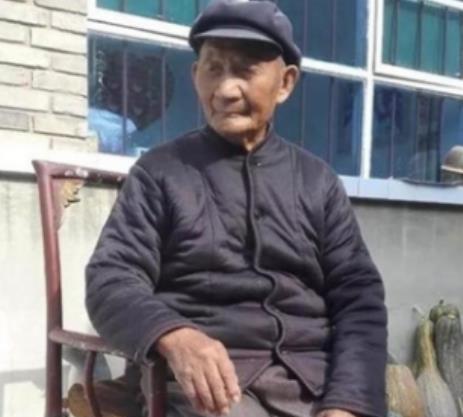In the long military career of Mr. Zhu, there have been many guards. For example, Liu Changgui served as a guard for Zhu Laozong during the Red Army period; Dai Chengfu and Pan Shaozhou both served as Guards for Zhu Laozong during the War of Resistance Against Japan. Mr. Zhu is approachable and has a deep impression on the staff around him. As the years passed, Liu Changgui, Dai Chengfu and Pan Shaozhou all died. Among The guards of Mr. Zhu, only Feng Zigen was still alive.

Feng Zigen was born in January 1918 in a poor mountain village in Guangyuan, Sichuan Province, with six brothers and sisters, and he ranked fifth. Feng Zigen's parents are honest and responsible croppers, busy in the fields all year round. However, due to the barrenness of the mountains, the yield per acre is very limited, and there are many children, so life is very difficult. If there is no accident, Feng Zigen is likely to live in the mountains for a lifetime like his father.
In December 1932, the Red Fourth Front created a new revolutionary base area on the border of Sichuan and Shaanxi, and the Red Army attacked local tyrants to divide the land, which seriously threatened the interests of the Sichuan warlords. In mid-February 1933, the Sichuan warlord Tian Songyao, with the support of Lao Jiang, dispatched 60,000 troops to launch a three-way siege of the Sichuan-Shaanxi Su District. The Red Army rose up to meet the battle under the command of Xu Xiangqian, and after more than four months of bitter fighting, the Red Army crushed the enemy's attack and killed and captured more than 24,000 enemy troops.
After this great victory, the Soviet zone was further consolidated and developed, and the main force of the Red Army was expanded from four divisions to four corps. In order to defend the fruits of victory, many young and middle-aged people joined the army, and Feng Zigen, who was only 15 years old, also became a member of the Red Army. After that, Feng Zigen followed the troops to participate in the anti-Six Road Siege and the forced crossing of the Jialing River, and his performance was very outstanding. After Maogong joined the division, Zhang Guotao insisted on going south, causing the Red Fourth Front to suffer great losses, forced to cross the snowy mountains and meadows three times, and paying a great price of attrition.
Feng Zigen's company was reduced from 170 to more than 30 men, and he nearly starved to death when he crossed the grass for the last time. After the outbreak of the War of Resistance Against Japanese Aggression, Feng Zigen entered the 386th Brigade of the 129th Division of the Eighth Route Army as a squad leader. On November 7, 1937, more than 300 people from the vanguard of the 79th Wing of the 40th Brigade of the Japanese Army entered Guangyang and were suddenly ambushed by the 772nd Regiment of the 386th Brigade of the Eighth Route Army. After the battle began, the Japanese army relied on superior firepower to resist. At that time, the average soldier of the 772nd Regiment was less than ten bullets per soldier, and in order to end the battle as soon as possible, the soldiers rushed into the enemy group and fought with the enemy with bayonets.
In the White Blade Battle, Feng Zigen and his comrades cooperated with each other and killed several enemies, but they were also seriously injured and sent back to Yan'an for treatment. After recovering from his injuries, Feng Zigen stayed in the guard regiment of the Eighth Route Army Headquarters and served as the guard squad leader for Mr. Zhu. Due to the working relationship, Feng Zigen has been in contact with Mr. Zhu many times. Mr. Zhu taught him carefully and encouraged him to study and study. Two years later, Mr. Zhu personally sent Feng Zigen to the Anti-Japanese Military and Political University to study.
Feng Zigen cherished this hard-won opportunity and studied extra hard. After two years of training and hard study, Feng Zigen's military quality and cultural level have been greatly improved. After graduating from the Kang Da, Feng Zigen first served as the commander of the 2nd Battalion of the 59th Regiment of the Taiyue Military Region's First Death Column, and soon after was transferred to the Instructor of the Armed Engineering Team of the Second Division of the Taiyue Military Region. If we continue to develop in this way, after the founding of New China, Feng Zigen will definitely have a lot of achievements. However, in the winter of 1944, when Feng Zigen led a team of martial artists to attack the Japanese stronghold of Nogawa Village in Gaoping County, he was seriously wounded, his left palm was pierced by a bullet, and his crotch and leg were injured by bombs.
Due to the limited medical conditions at that time, the shrapnel could not be removed, and Feng Zigen was left with a lifelong disability. More than a year later, because his injuries did not heal, Feng Zigen regrettably left his beloved unit and retired to his hometown. Feng Zigen, who returned to his hometown, did not talk about working as a guard for Mr. Zhu, and was at ease as a farmer. Now that the old hero is 103 years old, in recognition of his contributions, the state subsidizes him with 80,000 yuan per year. After the matter was whisked away, the merit and name were deeply hidden, which was probably the best portrayal of the old man Feng Zigen.